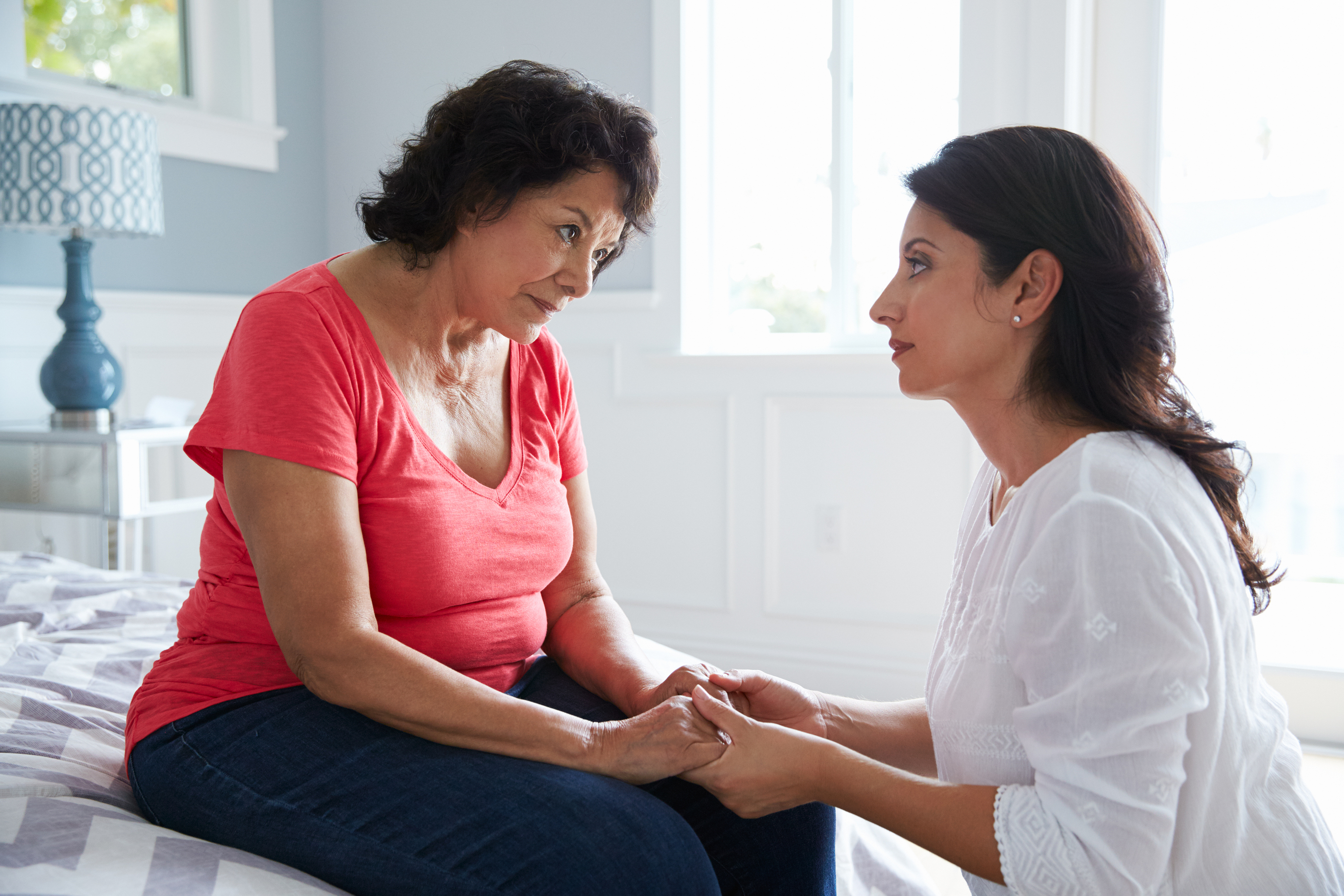Supporting and caring for someone with dementia
Helping to support someone through any condition can lead to a closer and more fulfilling relationship.
However, due to the difficult symptoms of dementia, caring for someone with this disease can be both physically and mentally exhausting. Dr Mark Winwood, our Director of Psychological Services says that it’s common for those close to someone diagnosed with dementia to feel a mixture of emotions although it affects different people in different ways.
Some people with dementia are able to live an independent and full life for some time after being diagnosed, as the speed with which a person deteriorates can be different from one person to the next. However, as the condition progresses, the person’s needs and abilities change and this will affect the way they relate to family and friends, along with their work and social life. Those close to someone with dementia can feel saddened and upset at the ‘loss’ of the person they knew.
Ways for friends and family to cope
It can be very difficult to see your friend, loved one or family member struggling with things they used to be able to do and it may leave you feeling helpless. However, the best thing you can do for them is be there and give your support.
- Do ensure that you take the time to be with them as much as possible during the early stages while they are still able to make key choices.
- Learn as much as you can about dementia so you understand the current symptoms and how they will progress
- It is important to know the wishes of the person with dementia so you are clear which path to take when their condition deteriorates.
- Don’t hide the fact that the person you care about is suffering from dementia, other people need to understand what is going on.
- Try and stay positive and focus on the things the person can still do and make the best of your time together
- Most dementia sufferers can remember events from their past much more readily than what they did yesterday so use old photos or keepsakes to prompt a memory.
Mark says that when things become tough try and focus on some of the positive aspects of supporting someone. Think about your relationship with them, your fondness for them and the fact that you are there for them and helping them enormously. This can be very difficult to do when the person you are caring for doesn’t even remember your name but try to behave normally because, even when they can’t tell you, the person you care for still feels the same about you. However feeling emotional or angry is a normal reaction, so don’t be afraid to ask for help and support if you need it.
Go easy on yourself
When you care for someone it’s all too easy to forget your own needs. You must keep strong both mentally and physically. Mark suggests a few ways for you to look after yourself:
- Don’t suffer in silence – Bottling up your feelings, or not taking the time to address issues with your loved one is not healthy. Gently speaking about your feelings should help your relationship
- If you care for someone all day every day then you will exhaust yourself and possibly even resent being there. Be realistic and clear as to what you are able to achieve.
- Of course, your own life will change as you care for your loved one but it is important for your own wellbeing to see friends and keep a support network for you.
- Ask for help – caring for someone with dementia is tough. Don’t be afraid to ask for help and support. Involve family and friends to give you a break and reduce some of your stress, alternatively a voluntary organisation or your GP may be able to help find some respite care. Talking to other carers about your experiences can also be useful as they understand what you are going through. If you feel that you’re really struggling then try to talk to someone as soon as possible.
Some further reading and useful links:
-
- Dementia— NHS Choices
- Alzheimer’s disease— NHS Choices
- Age UK
- Alzheimer’s Society
- Carers UK
- Citizens Advice Bureau
- Dementia Action Alliance
Disclaimer
All content on Silversurfers.com is provided for general information only, and should not be treated at all as a substitute for the medical advice of your own doctor or any other health care professional. Silversurfers will not be responsible or liable for any diagnosis made by a user based on the content on www.silversurfers.com and we are also not liable for the content of any external websites or links from or to Silversurfers to any other websites. Please always consult your own doctor if you’re in any way concerned about any aspect of your health.
Melina - Assistant Editor
Latest posts by Melina - Assistant Editor (see all)
- Top tips for hay fever sufferers - April 14, 2024
- Paysan Breton Cream Cheese Breakfast Wraps - April 12, 2024
- 4 Homemade Sweet Treats for Easter - March 24, 2024
- Playground Memories - March 10, 2024
- The invasion of the duvet: the ’10-second bed’ - February 20, 2024





















